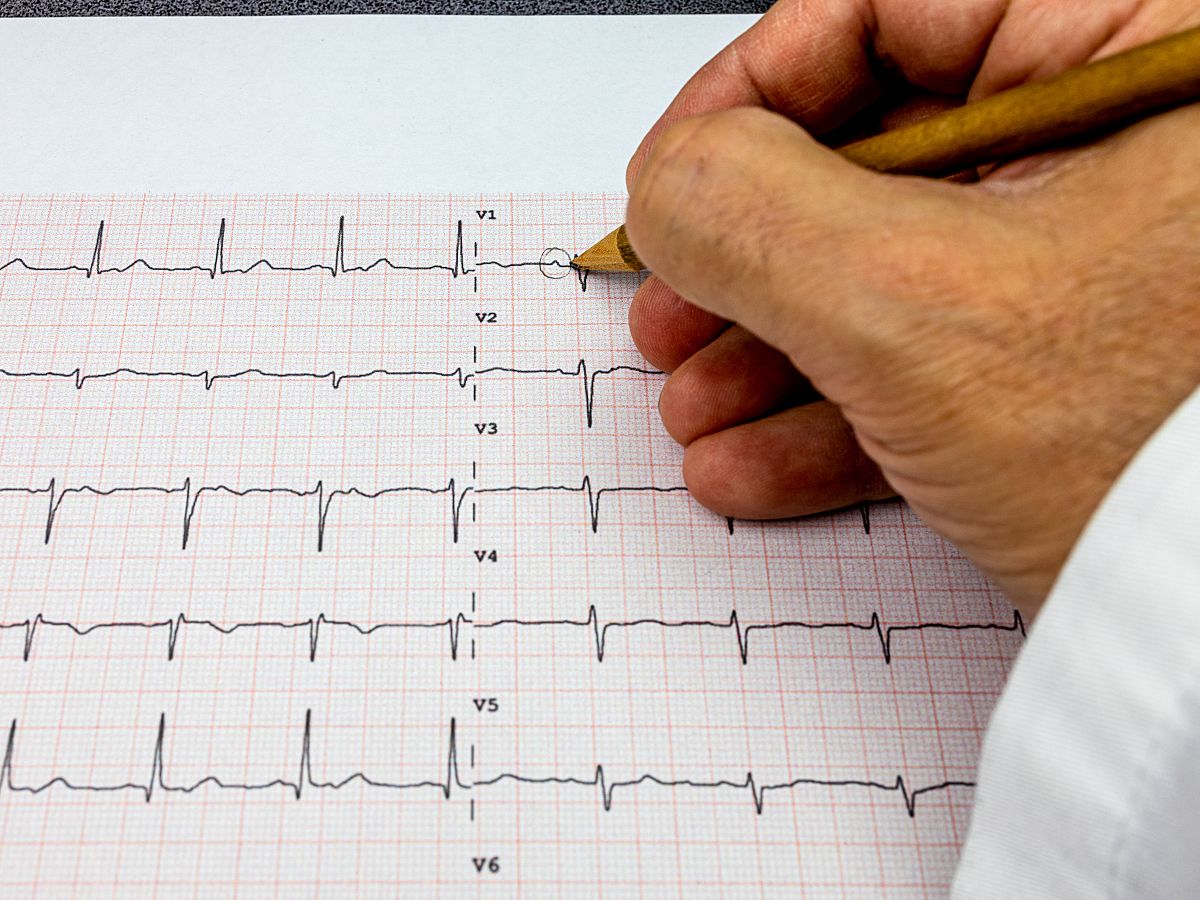Electrocardiography is a vital tool in the medical field, providing crucial insights into the heart’s electrical activity. This quiz will guide you through the essential aspects of ECG interpretation, from understanding waveforms to recognizing common abnormalities. Sharpen your skills and deepen your understanding of this indispensable diagnostic technique.
We recommend that you do not leave the page that you are taking this quiz in. Stay honest 🙂
Basic ECG Quiz Questions Overview
1. What does the P wave on an ECG represent?
Atrial depolarization
Ventricular depolarization
Atrial repolarization
Ventricular repolarization
2. Which part of the ECG corresponds to the ventricular depolarization?
P wave
QRS complex
T wave
U wave
3. What does the T wave on an ECG indicate?
Atrial depolarization
Ventricular depolarization
Atrial repolarization
Ventricular repolarization
4. Which interval on the ECG represents the time taken for the electrical impulse to travel from the atria to the ventricles?
PR interval
QT interval
ST segment
RR interval
5. What is the normal duration of the QRS complex?
0.04 to 0.10 seconds
0.12 to 0.20 seconds
0.20 to 0.30 seconds
0.30 to 0.40 seconds
6. Which of the following is a common cause of a prolonged QT interval?
Hyperkalemia
Hypocalcemia
Hyponatremia
Hypermagnesemia
7. What does an elevated ST segment typically indicate?
Atrial fibrillation
Myocardial infarction
Ventricular tachycardia
Atrial flutter
8. Which lead is commonly used to monitor the heart rhythm in a standard ECG?
Lead I
Lead II
Lead III
aVR
9. What is the heart rate if the RR interval is 0.8 seconds?
50 bpm
60 bpm
75 bpm
80 bpm
10. Which of the following is a characteristic of atrial fibrillation on an ECG?
Regular P waves
Irregularly irregular rhythm
Prolonged PR interval
Wide QRS complex
We recommend that you do not leave the page that you are taking this quiz in. Stay honest 🙂
Can Your Friends Do Better Than You in This Quiz?
Share this quiz with your friends and compare results.
Was this page helpful?
More Popular Health & Wellness Quizzes:
-
Bipolar or ADHD Quiz
-
Sepsis Quiz
-
Medical Terminology Quiz
-
Body Regions Quiz
-
Puberty Quiz
-
Sexual Harassment Quiz











